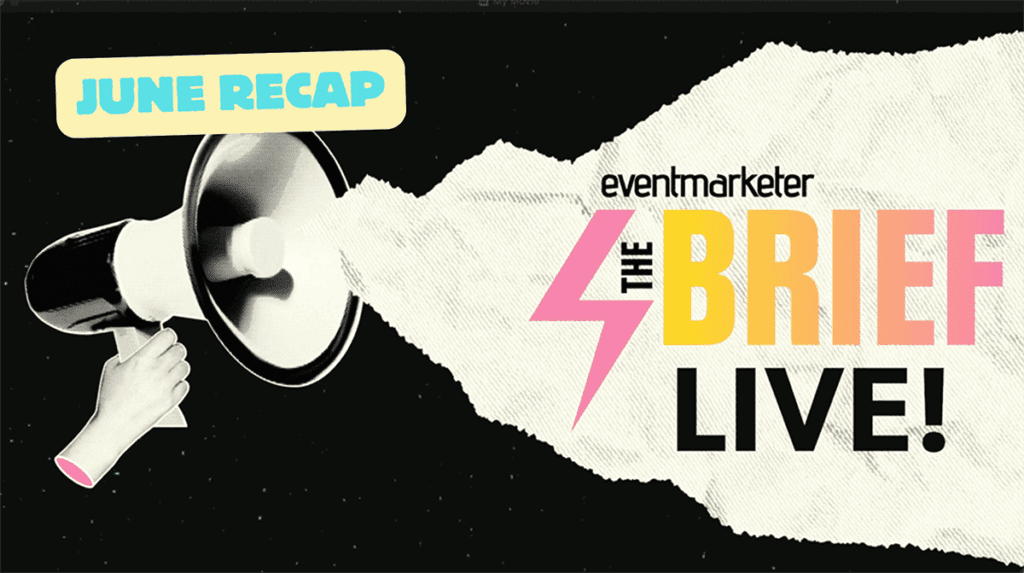 Chief Marketer recently chatted with the leaders of some of our B2B 2019 CM200 agencies to discover what they thought were the top challenges, trends and opportunities in B2B marketing for the new year. (For the complete list of the 2019 CM200, click here.)
Chief Marketer recently chatted with the leaders of some of our B2B 2019 CM200 agencies to discover what they thought were the top challenges, trends and opportunities in B2B marketing for the new year. (For the complete list of the 2019 CM200, click here.)
What are the biggest challenges for B2B marketing in 2019?
CHRIS EIFERT, PRINCIPAL, TRICOMB2B: Proving marketing ROI. B2B marketers will continue to design campaigns and apply B2B marketing technology in ways that more closely connect their efforts to revenue. No change here, but it’s an important pursuit that needs to remain in the forefront. However, one of the things that could get lost in this focus on metrics and technology is the quality of connections marketers are making. They must keep in mind that the pursuit of metrics and the next best technology isn’t the end game. We need to hold programs and technology pursuits accountable to whether they create authentic touch points that engage customers in meaningful ways. Customers aren’t data points and certainly won’t respond to being treated like ones.
AMY FISHER, VP, PADILLA: One of the biggest challenges marketers have always faced is the question of “which communication channel is best?” As we move into 2019, the volume of communication channels that marketers can choose from is going to expand even further with new ways to deliver 3D content, AI-driven channels, live video, micro-influencer communities and more. As B2B marketers, we need to have a deep level of understanding of our end buyer’s behaviors, the channels they trust, and their location along the buyers’ journey. The closer we can match our communications activities and channels to these buyer behaviors and preferences, the more purposeful and effective we can be.
MIKE NEUMEIER, PRINCIPAL, ARKETI GROUP: Data-driven marketing is real and it is here. Now marketers need to get their heads around it. Many will unwittingly find themselves in a state of analysis paralysis due to data overload. The robust martech stack most marketers have invested in produces more data than is needed and leaves marketers wondering where to start. It’s best to attack this the same way you’d eat an elephant: one bite at a time. Resist the urge to try to master all your data—instead, start by focusing on one area. Understand what’s meaningful, what can be controlled, and what’s a red herring.
GRANT JOHNSON, MEASURABLE MARKETING CONDUCTOR, RESPONSORY: With the resurgence of classic direct marketing strategies and tactics, and testing becoming even more critical, data, segmentation across all channels, and testing throughout each will be paramount in 2019 and beyond. With the measurement comes challenges, specifically hard attribution among each channel and continued reliance on sales to work closely with marketing to determine what’s working and what needs improvement.
JOANNA BITTLE, AGENCY PARTNER, COMMCREATIVE: Adoption of account-based marketing continues to rise—a Terminus survey found more than 80 percent of B2B marketers plan to increase their budget allocation of ABM in the next year. This shift brings new communication challenges for marketers. In the coming year, agencies will need to adopt the language of sales teams to align their efforts with sales goals. Marketers who invest time in understanding sales team frameworks such as Sirius Decisions are more likely to effectively communicate with sales and achieve a common goal. Standardizing the language across sales and marketing, so that both sides understand what KPIs are sought, gives businesses the best chance of generating additional revenue from each account.
RON KLINGENSMITH, EVP/CCO, SLACK AND COMPANY: This is best answered by clients. That said, I would assume its shrinking budgets, more proof of ROI, or better integration between sales and B2B marketing, getting prospects to open an email—let alone respond to one, matching content to the buyer journey and standing out on the web.
HOWARD BREINDEL, CO-CEO, DESANTISBREINDEL: Every B2B marketer knows content is no longer just a buzzword: it’s the key to attracting and retaining audiences. In 2019, marketers’ focus will shift even further away from producing promotional or sales materials and more toward sharing differentiated, value-added content that their audiences can’t find anywhere else. The challenge will be to develop strategies for understanding what kind of content their audiences actually want to consume—and finding ways to produce and promote it in a cost-efficient and scalable way. In a data-driven world, marketers are under more pressure than ever to prove their worth—and B2B marketers often need to work harder than their B2C peers to justify spend. In 2019, B2B marketers will be tasked to move beyond anecdotal evidence to provide the hard facts and figures that demonstrate their influence on the bottom line. To do this, they will continue to look for industry-wide benchmarks and increasingly seek out digital tools with powerful analytics and dashboards that can help them demonstrate ROI.
You May Also Enjoy:
- B2B Marketing Automation All Stars
- 2019 B2B Marketing Outlook Survey
- ABM Success Hinges on Sales and Marketing Alignment
CHRISTOPH BECKER, CEO/CCO, GYRO: The power of data and technology cannot be harnessed at the expense of humanity. The most successful companies will find the right balance between staying true to the brand at its core and effective performance marketing.
TOM STEIN, CHAIRMAN, STEIN IAS: A year ago—make that three months ago—I perhaps would not have put this at the top of my list of challenges. But I think developments in the interrelated political, economic, environmental and societal spheres are coming home to roost. Global trade constraints and the adversarial relationship between the world’s two great economic engines (US and China)…the endless Brexit downwards spiral…worsening political and societal dissonance…the acceleration of climate change’s global impact…2018 has been quite a year. Now, financial markets are falling and business leaders are acknowledging greater risk by acting with greater caution. We have not felt a “pullback” from clients and most have experienced strong years driven by transformation. But the challenge is real and is part of the context for 2019.
DEBBIE QAQISH, CHIEF STRATEGY OFFICER, THE PEDOWITZ GROUP: Today’s B2B CMO is not facing one or two big challenges. She is facing three big challenges in 2019. These challenges include leading the pivot to customer-centricity, amplifying and leveraging digital transformation beyond marketing and into company business models and finally, adopting financial accountability. For the marketing team tasked with operationalizing these strategies, they will need to change their mindset, broaden their skillset, sharpen their toolset and optimize their martech stack.
ADAM VASQUEZ, FOUNDER/CEO, MERIT: History shows that we’ll be entering an economic recession within the next two years. This will put pressure on businesses to reduce marketing spend to protect cash. To compound the economic impact, the Internet has changed the buying process forever and spending more on sales, marketing and digital no longer makes you first in your market. Many challenger brands with shrinking budgets are beginning to re-deploy marketing spend to disrupt or protect market leadership.
MATT BROOM, PRESIDENT, DOREMUS NEW YORK: As content marketing continues to grow, the insatiable demand for a constant stream of relevant and quality content will present an ongoing challenge to marketers. A frequent challenge is the content gap between high level branding campaigns and product level information, “the messy middle.” And, as social media has demonstrated, the line between B2B and B2C marketing has forever been blurred. Both audiences are often exposed to the same content and consumer technologies such as smart speakers and other voice-activated devices will inevitably find applications in B2B marketing during 2019.
RENEE YEAGER, FOUNDER/MANAGING PARTNER, YEAGER MARKETING: Marketers continue to be pulled in many different directions while also being required to accelerate results. 2019 will be more of the same. Marketers face the challenge of balancing a growing tech stack, more data management, regulation challenges and customer experience management, just to name a few. Marketers will need to figure out how best to focus their time, attention and budget to deliver meaningful results to the business. And it’s far from simple. With more strategic priorities being passed to marketing, balancing traditional marketing goals such as lead generation with new organization-wide initiatives will create new challenges.
What are the biggest B2B marketing trends agencies should be thinking about for the new year?
JOHNSON: A shift away from a creative-centric to data-specific measurable marketing approach is a key trend that all agencies need to be aware of and adjust to. With AI and machine learning becoming more mainstream, B2B marketers are demanding that their agency partners provide key strategic insights into trends and results; not just award trophies. Voice search and content creation that resonates with the targeted audiences will also be important in 2019.
EIFERT: The B2B marketing technology landscape has shifted from “shiny new object” to “viable option.” Marketers have a clearer understanding of the practical applications and value of digital, data-driven B2B marketing approaches. As a result, we think we’ll see a creative resurgence. For marketing to produce better results, it must engage at an emotional level. Better results from marketing programs aren’t just a question of technology investments. Agencies and marketers will rediscover that great creative is what drives outcomes. We’ll also see a better execution of the fundamentals. Rather than dabbling in many different tactics, marketers will become more focused with their programs and campaigns: simplified messages; improved customer emphasis; interesting calls-to-action; and investments in fewer, higher-impact tactics. B2B marketers will get wiser on when and how to apply technology and remember that digital is just a delivery channel.
 BREINDEL: While B2C and B2B marketing have historically been treated as two separate disciplines, in 2019, that is no longer the case. With B2B marketers looking to make their experience as seamless, satisfying and slick as the B2C experiences their clients have on a day-to-day basis, agencies need to be ready to help. This means providing offerings that can help B2B organizations improve interactions along the entire customer journey, deploy powerful content strategies including modern, engaging formats, amp up digital engagement, and create buzzworthy event activations.
BREINDEL: While B2C and B2B marketing have historically been treated as two separate disciplines, in 2019, that is no longer the case. With B2B marketers looking to make their experience as seamless, satisfying and slick as the B2C experiences their clients have on a day-to-day basis, agencies need to be ready to help. This means providing offerings that can help B2B organizations improve interactions along the entire customer journey, deploy powerful content strategies including modern, engaging formats, amp up digital engagement, and create buzzworthy event activations.
FISHER: Content marketing is still on the upswing but it’s evolving. B2B marketing agencies need to think about how they’re counseling clients to take advantage of personalized and customized content. In the new year, marketers will need to think way beyond the eBook into multimedia, live social-based video, podcasts and more. These tactics and channels address a trend among both consumer and B2B buyers for short, snappy and engaging pieces of content that they can get on the go. As buyers continue to be more mobile and have less time for blatant or boring brand messaging, content must be designed to be entertaining and educational, while delivering a concise message custom designed for the recipients.
QAQISH: The biggest trend for agencies will be to help B2B marketing pivot to customer-centricity. More companies understand the value of a customer-centric approach and marketing is leading the effort. Agencies will need to be ready to talk about customer journeys, customer personas and how to optimize the entire customer journey. They will need to create a B2C experience for the B2B customer and show the bottom-line impact of these new engagement levels.
STEIN: Creative has gotten a lot better across B2B. I think the output from 2018’s awards shows is terrific evidence. That said, it needs to get better yet and I think it will. This needs to be the case across all formats and channels. My comments above about the surging sea of content reflect the need for better, more valuable and enlivened content. The increased emphasis on experiences means taking better advantage of AR, VR 360-degree video, gamification, and so on. Advertising shouldn’t be considered a “bad word” in B2B, so long as its great advertising.
BECKER: B2B marketing has a huge opportunity in these times of uncertainty in our industry to lead the growth agenda of our clients through collaborative entrepreneurship; living and breathing the business agenda and challenges of our clients as true partners, acting as one. Not me and you. Only WE. Only then will we be able to build future-proofed business solutions that combine creativity and technology with courage and bravery. As we know, we need to be guided by purpose and principles. Drastic growth springs only from ingenuity and risk.
You May Also Enjoy:
- 2019 Chief Marketer 200
- The Best of the Best: PRO Award Winners Case Study Gallery
- Masters of Martech
YEAGER: Agencies can bring unique value to their B2B clients by coupling strategy and innovation. While neither are new, far too often agencies try to work them in silos instead of letting process and technology drive the innovation efforts. For example, agencies can help clients explore new technologies that can bring elevated brand experiences such as chatbots and augmented reality. Another opportunity is with account-based marketing (ABM). Most B2B companies are interested in moving to ABM, but don’t feel confident in the best approach and tech to support it. Agencies can help bring a strategy and process to the table, and support the planning, messaging, content creation and execution as well.
NEUMEIER: It’s all about sales. The one question that all agencies should be asking clients, always: how are sales going? Agencies that are not working to help clients connect marketing and communications strategies and tactics all the way through to sales will struggle. While words like brand, thought leadership, influence, reputation and content make sense to us in the agency world—and are important—if they are not connected to sales they will ring empty with clients. Ensuring that B2B marketing generates revenue is the trend to watch in 2019 (as it should be every year.)
KLINGENSMITH: Helping clients create more types of content for the various stages of the buyer journey to support their ever-expanding ABM efforts, Podcasts, producing more snackable, and bingeable video content, making their websites more customer centric (better UX to help prospects find what they’re looking for), voice search given the proliferation of Alexa-type devices in the home and going retro with good old fashioned dimensional direct mail to break through the e-clutter.
BROOM: Agencies must assist clients with the intelligent distribution of relevant content to the right audiences at the right time. This can be done through the mapping of audience behaviors, needs and business goals. The era of generalist agencies is rapidly drawing to a close. In today’s hyper-competitive environment, agencies must be specialists in order to survive and thrive.
BITTLE: Social is no longer its own separate channel but is seen by buyers as an extension of your website. This means customers and prospects expect to see a unified brand experience and have access to the same types of information across both platforms. This is good news for businesses because people are more likely to engage with a brand on social channels due to their emergence as a peer-to-peer network. Creating easy ways for customers and prospects to obtain the information they need and communicate with you directly will be key. For B2B companies, this might mean posting an excerpt of a case study on LinkedIn instead of directing followers to the content on your site. Keeping engaged visitors on the network they enjoy and providing the information they need there will increase your chances of developing a deeper relationship with them.




 Network
Network

